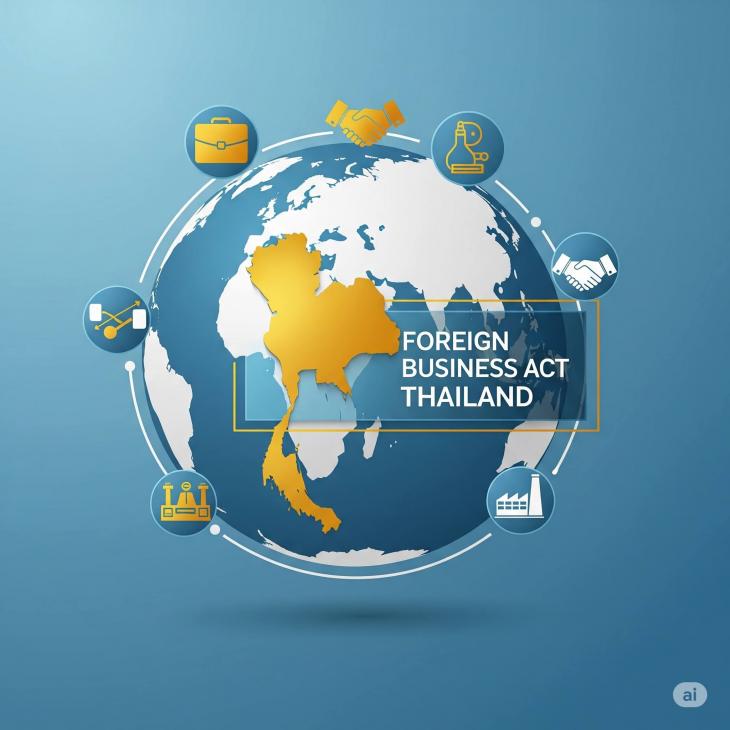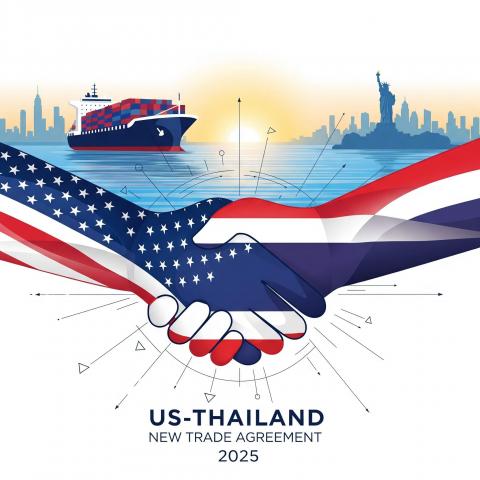Unlocking the Doors to Business in Thailand: A Guide to the Foreign Business Act
Navigating the legal landscape is crucial for any foreigner looking to establish a business in the vibrant Thai market. This guide delves into the Foreign Business Act (FBA), a key piece of legislation governing foreign participation in the Thai economy.
What is the Foreign Business Act (FBA)?
The Foreign Business Act, enacted in B.E. 2542 (1999), is the primary law that outlines the rules and restrictions for foreigners who wish to conduct business in Thailand. Its main purpose is to protect Thai businesses and industries while still encouraging foreign investment in sectors that can benefit the country's development.
The FBA defines a "foreigner" as:
- A natural person who is not of Thai nationality.
- A juristic person (e.g., a company) that is not registered in Thailand.
- A juristic person registered in Thailand in which 50% or more of the capital shares are held by non-Thai individuals or juristic persons.
Restricted Business Categories
The FBA categorizes businesses into three lists, each with varying levels of restrictions for foreign participation:
List 1: Strictly Prohibited Businesses
For "special reasons," foreigners are completely prohibited from engaging in the businesses on this list. These include:
- Newspaper and radio/television broadcasting stations.
- Rice farming, planting, or cultivation.
- Livestock farming.
- Forestry and timber processing from natural forests.
- Fishery in Thai waters and specific economic zones.
- Extraction of Thai herbs.
- Trading and auctioning of Thai antiques or national historical objects.
- Making or casting of Buddha images and monk's alms bowls.
- Land trading.
List 2: Businesses Requiring Cabinet Approval
Foreigners may operate businesses in this category only after receiving a license from the Minister of Commerce with the approval of the Cabinet. These businesses are related to national safety and security, arts and culture, and natural resources. A key condition is that at least 40% of the capital must be held by Thai nationals, and two-fifths of the directors must be Thai citizens.
List 3: Businesses Requiring a Foreign Business License
This list includes businesses in which Thai nationals are not yet considered ready to compete with foreigners. To operate in these sectors, a foreigner must obtain a Foreign Business License (FBL) from the Director-General of the Department of Business Development. Examples include certain types of retail and wholesale, advertising, and hotel businesses (excluding hotel management).
How to Legally Operate a Restricted Business in Thailand
While the FBA imposes restrictions, there are legal pathways for foreigners to engage in many business activities. The two most common are:
1. Board of Investment (BOI) Promotion
The Thailand Board of Investment (BOI) offers incentives to businesses in specific industries that it aims to promote. A BOI-promoted company can be 100% foreign-owned and is generally exempt from the restrictions of the FBA. The BOI provides a range of tax and non-tax incentives, making it a very attractive option for foreign investors.
2. The Treaty of Amity and Economic Relations between Thailand and the USA
The Treaty of Amity allows American citizens and US-incorporated companies to own a majority of the shares in a Thai company and engage in a wide range of business activities on the same basis as Thai nationals. This provides a significant advantage for American investors.
The Importance of Avoiding Nominee Shareholders
It is crucial to understand that using "nominee" Thai shareholders to circumvent the FBA's ownership requirements is illegal. A nominee is a Thai national who holds shares on behalf of a foreigner without having a genuine financial interest in the company. The penalties for using nominees can be severe, including fines and imprisonment for both the foreigner and the Thai nominee. For more details on compliant business structures, see our page on company formation.
Conclusion
The Foreign Business Act is a critical piece of legislation that every foreign investor in Thailand must understand. While it presents certain hurdles, legal avenues such as BOI promotion and the Treaty of Amity provide excellent opportunities for foreigners to successfully establish and operate businesses in the Kingdom. For expert legal guidance on navigating the FBA and setting up your business in Thailand, do not hesitate to contact PS Law & Business.
Frequently Asked Questions (FAQ)
Q: Can a foreigner own 100% of a company in Thailand?
A: Yes, it is possible for a foreigner to own 100% of a company in Thailand if the business is promoted by the Board of Investment (BOI) or if the foreigner is a US citizen taking advantage of the Treaty of Amity. For more information, read our blog on whether a foreigner can hold 100% of shares in Thailand.
Q: What is a Foreign Business License (FBL)?
A: A Foreign Business License is a permit issued by the Department of Business Development that allows foreigners to operate businesses that fall under List 2 or List 3 of the Foreign Business Act.
Q: What happens if I operate a restricted business without a license?
A: Operating a restricted business without the necessary license is illegal and can lead to significant penalties, including fines and imprisonment. It is essential to ensure your business is fully compliant with the FBA.
Q: Is it difficult to get a Foreign Business License?
A: The process of obtaining an FBL can be complex and time-consuming. The application requires detailed information about the business, and the authorities will consider various factors, such as the benefits to the Thai economy.




